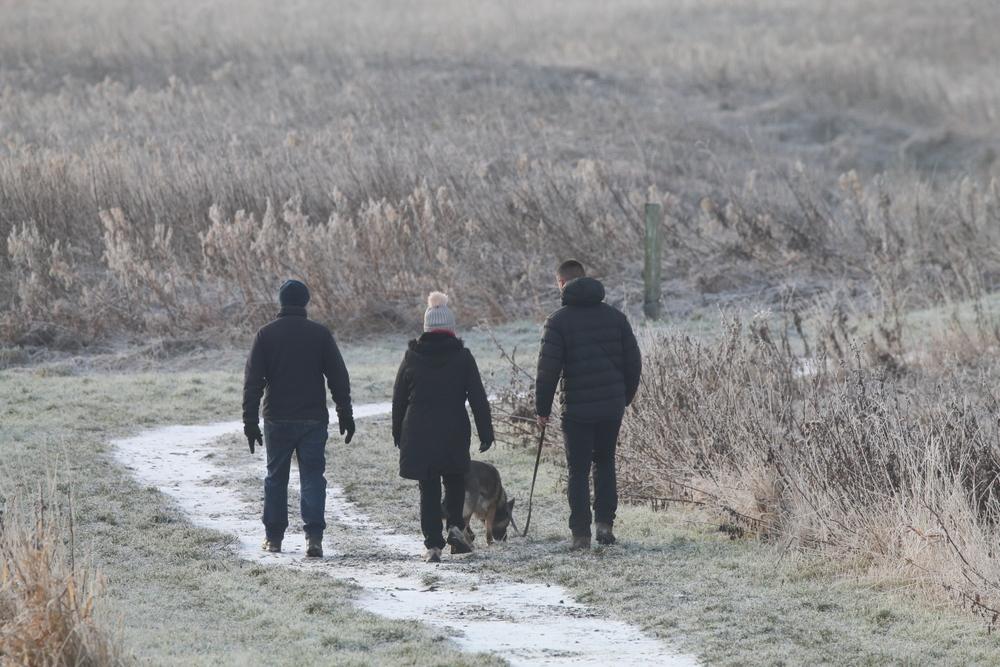Supporting A Person With Dementia At Christmas
Dementia / Family HealthChristmas means many things to many people—from food, family and festivities, to religious observance and quiet reflection. But for people affected by dementia it can be more difficult. Here are 8 ways you can support people with dementia at Christmas.
There is always so much to consider at Christmas, and that’s especially true for carers.
So, with help from our online community Dementia Support Forum, we’ve compiled a few tips to help you make the most out of the festive season. Here are some tips to help you support your loved one (and yourself) this Christmas.
8 ways to support somebody with dementia at Christmas
1. Put decorations up gradually
Introduce the Christmas environment slowly. Think about putting decorations up gradually over a few days so it doesn’t come as a big change to the person’s usual setting.
2. Keep it simple and familiar
Someone with dementia may feel overwhelmed over the Christmas period, so it's best not to overdo it. Keeping the day's activities low-key will help your loved one to relax.
If they usually go to church around this time but are unable to, consider online or televised services. Sticking to a familiar routine is also a good idea where possible. Having meals at regular times and in familiar surroundings will help to limit any potential confusion.
3. Get everyone involved
There are many ways to involve people living with dementia at Christmas time – from something as simple as hanging a bauble on the tree to doing a spot of Christmas shopping. Playing Christmas music and singing favourite carols can be a simple way to involve the person in the festivities.
4. Create a quiet area
A large number of guests can be overwhelming, so ask family and friends to spread out their visits over the festive period. If things do get busy, designate one room or space in the home a ‘quiet area’ where your loved one can relax without loud noise. For some people, listening to music on headphones can be a good way to block out the noise and feel calmer.
5. Bring back old memories
Whether it’s an old song they used to enjoy or a classic Christmas film, find something you can take part in that is important to the person. Making a family photo album or memory box could be a nice way to spend time together.
Be mindful that there may be things the person does not wish to reminisce about, such as upsetting events and people that they miss.
6. Be mindful of food
Although many people eat a lot at Christmas, a full plate can be daunting for someone who has difficulties eating. If you're doing the serving, try not to overload your loved one’s plate. We've also got lots more general tips to help with eating and drinking on our website.
Dementia Support Forum member BarbGee said:
'My husband was diagnosed with Lewy Body about 12 years ago and increasingly finds changes to our normal routine distressing. For the last few years we've just stayed at home by ourselves and kept Christmas really quiet.'
'Last year Christmas Day was one of his "bad" days and he actually stayed in bed, asleep, until tea time. He wanted scrambled eggs so that was our Christmas meal.'
I think my tip would be to keep it simple and try not to be disappointed if it's all a bit dull. That's life!
7. Be flexible
It’s easy to get caught up in Christmas traditions and how things have always been done in the family, but your festive season might begin to look different as dementia progresses. It's always worth having a plan B, and be prepared to change your plans if a particular element isn't working.
Dementia Support Forum member wildasba said:
'My mum loved Christmas with us but on Boxing Day, when we had other family and friends over (it was the same group of people every year, who she knew), she would get very stressed, sitting away from everyone else (sometimes out on the stairs).
'A couple of times she was abusive to other people and she was always clingy with me - the whole thing was overwhelming for her and she couldn't cope. This was despite asking who was coming, wanting to help with the preparations and being quite excited about it all.'
Even if they seem ok with the whole idea, don't take it personally if they behave the opposite. In fact, our mantra for coping with Mum, these last few years, is exactly that - Don't Take It Personally!
8. Plan ahead
Consider minimising situations where the person with dementia is put on the spot to remember names. Think about giving a gentle reminder each time a new person arrives, or ask that people introduce themselves. Speaking with family members in advance, especially younger children, may help avoid embarrassing moments for someone with dementia too.
If the person with dementia is living in a care home, it can be helpful to ask the home in advance what their plans are for Christmas Day - particularly if they have restrictions on visiting times or amount of people allowed at any one time.














































